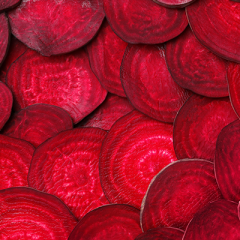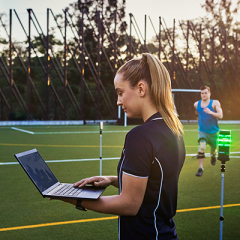A research partnership between the Institute for Urban Indigenous Health (IUIH) and UQ will expand a program which has halved pre-term births and gives Aboriginal and Torres Strait Islander families access to culturally safe birthing practices.
The highly successful Birthing in Our Community (BiOC) service, developed in 2013 by IUIH, Aboriginal and Torres Strait Islander Community Health Service Brisbane and Mater Mothers’ Hospital, will now be available to more mothers across South East Queensland.
CEO of the Institute for Urban Indigenous Health and proud Cobble Cobble / Wakka Wakka man, UQ Adjunct Professor Adrian Carson said the program has the potential to Close the Gap by improving life expectancy for Aboriginal and Torres Strait Islander peoples.
“By halving the pre-term birth weights for Aboriginal and Torres Strait Islander babies born in South East Queensland, we are addressing the important early stages of childhood development for our children,” Mr Carson said.
“BiOC is the only birthing program where the rate of Aboriginal and Torres Strait Islander women carrying pregnancies to full term, 93.1 per cent, surpasses the non-Indigenous average of 88.4 per cent.”
Proud Pitjantjatjara and Nukunu man and Director of UQ’s Poche Centre for Indigenous Health, Professor James Ward said the service is expected to host more than 750 births a year by 2023, allowing 500 more families access to the program.
“Our team of researchers will work alongside our IUIH colleagues to assess the clinical outcomes, scalability, sustainability and impact of this ‘gold standard’ community-led birthing program.” said Professor Ward.
A UQ-partnered study on the original BiOC program found participants were less likely to give birth prematurely, need a caesarean section or have their baby admitted to the neonatal care nursery.
Mr Carson said the program provides a culturally safe journey for Aboriginal and Torres Strait Islander families by addressing the key determinants of their physical, social, cultural and spiritual health and wellbeing.
Parents in the BiOC program get continuity of care with a dedicated antenatal and postnatal midwifery team.
Other services focus on social and emotional wellbeing and mother and father connections with baby, which include access to social work, perinatal psychology, and parenting support.
The BiOC program recently secured a $5 million grant from the Federal Government’s Medical Research Future Fund (MRFF).
Mr Carson said the MRFF grant provides essential resources for UQ’s leading researchers in Aboriginal and Torres Strait Islander health.
“As well as investigating how this community-led birthing model can translate into new locations the researchers can now build evidence for its long-term impact, including into early childhood years.”
The Birthing in Our Community (BiOC) program is delivered out of Birthing Hubs at Salisbury, Logan, Strathpine and Capalaba.
Media: Kirsten O’Leary, UQ Communications, k.oleary@uq.edu.au, +61 (0)412 307 594



